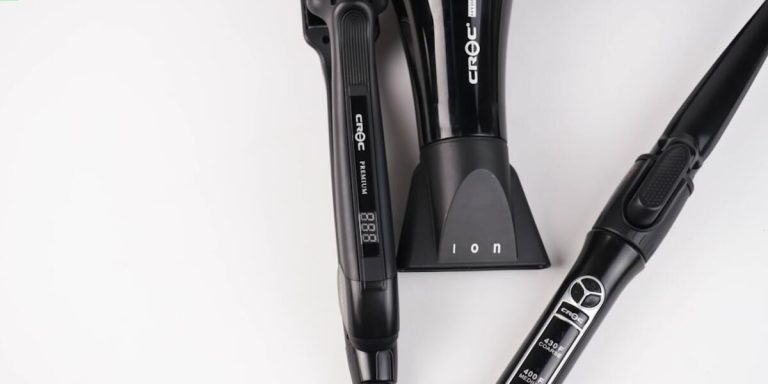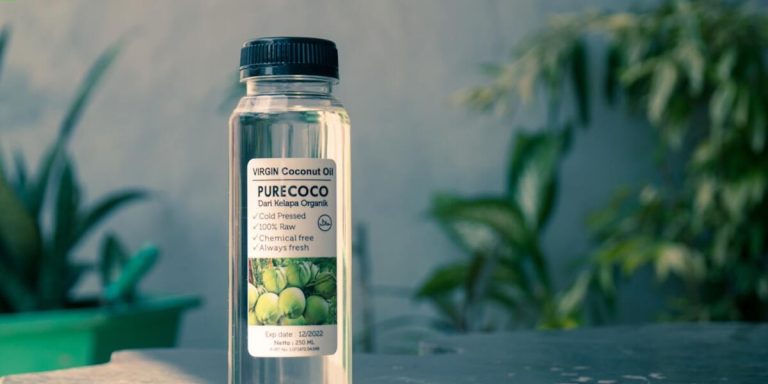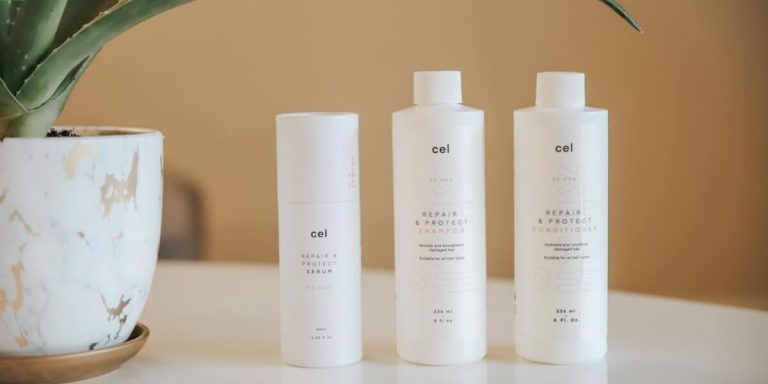Peptides for Hair Regrowth: Unlocking the Science Behind It
In the realm of hair regrowth, peptides have surfaced as a promising solution. By understanding what “peptides for hair regrowth” are and how they function, you can leverage this scientific breakthrough to regain your luscious locks.
Peptides aren’t just another buzzword in the vast sea of hair care jargon; these tiny protein fragments could be game-changers in fighting hair loss. Delving into their science not only inspires confidence but also helps tap into their full potential for restoring healthy growth patterns.
Did you know?
Interesting fact: A clinical study conducted in 2015 revealed that a certain bioactive peptide, known as “Copper Peptide”, was found effective at promoting hair growth and thickness by significantly stimulating hair follicle proliferation.
Understanding Peptides and Their Role in Hair Regrowth
Peptides, tiny protein fragments with immense potential, are rising to fame in the hair regrowth industry. As we dive deeper into understanding their dynamic nature and functionality, it’s clear that they hold a significant role in reversing hair loss. Our body naturally produces these molecules; however, external supplementation has shown promising outcomes for those battling baldness or thinning tresses.
There is an array of peptides available today but not all work towards fostering hair growth. Select ones like Copper Peptide and Decapeptide-18 have been identified as particularly beneficial for scalp health and follicle stimulation respectively. These power-packed compounds rejuvenate your scalp environment by boosting blood circulation carrying essential nutrients to your roots – paving the way for thicker strands over time.
In 2023 research within this field continues at lightning speed resulting from increased interest both from consumers seeking effective solutions and scientists excited about unraveling peptide complexities further. Thus far results showcase improvements such as denser coverage and accelerated growth demonstrating compelling evidence about peptides’ important contribution to tackling hair receding worries effectively.
The Science Behind Peptides Stimulating Hair Follicles
The concept of using peptides for hair regrowth has piqued the interest of scientists and consumers alike. The science behind this revolves around their ability to stimulate hair follicles, thus promoting healthier, fuller-looking locks.
Peptides are short chains of amino acids that function as building blocks for proteins like keratin which is essential in maintaining our hair health. They can penetrate the scalp easily due to their small size where they boost collagen production and improve blood circulation – both vital factors contributing to healthy growth rates.
Research conducted recently suggests that certain types of peptides could effectively encourage dormant or sluggish follicles back into a productive growth phase. This represents an encouraging breakthrough in preventing thinning strands from escalating into full-blown baldness.
Additionally, these molecules have displayed impressive anti-inflammatory properties during lab tests. Inflammation within the body often leads directly towards stress-related disorders such as alopecia; by tackling inflammation at its source we’re mitigating one more risk factor involved with premature fallout issues!
Different Types of Peptides Used in Hair Treatment Products
Peptides have gained major attention in the beauty world, especially when it comes to hair regrowth. They are essentially smaller versions of proteins and play a key role in promoting healthier and fuller hair growth. Many products now claim peptides as one of their primary active ingredients.
However, not all peptides are created equal. Specific types serve unique purposes when incorporated into your hair care regimen.
1) Copper Peptides: These tiny molecular compounds boost the production of collagen and elastin – essential for healthy scalp skin which can help enhance follicular health.
2) Biotinoyl Tripeptide-1: This peptide is popularly used because it supports strong roots by nourishing them from within so that they resist breakage better.
3) Acetyl Tetrapeptide-3: Stepping-up its game against alopecia (a common form of baldness), this peptide aids overall increases in blood circulation around your scalp region thus improving nutrient delivery directly to your follicles – an important factor leading towards steady regrowth!
Incorporating Peptides into Your Hair Care Routine
In a world that’s so fixated on appearance, losing your hair can be quite distressing. Fortunately, recent advancements in science and technology have introduced new methods to combat this issue – one such method is by incorporating peptides into your hair care routine.
Think about it like fitness training but for follicles: just as certain exercises sculpt muscles over time, applying peptide-enriched products strengthens every strand from root to tip while stimulating dormant follicles back into their production phase- all contributing towards fuller and revitalized locks. It’s no wonder why more people are harnessing the power of peptides for their hair regrowth journey today than ever before!
Topical Treatments: Serums and Lotions Containing Peptide Formulas
In the pursuit of restoring lost hair, peptides have emerged as a highly effective ingredient. Particularly, topical treatments like serums and lotions containing peptide formulas can stimulate hair regrowth remarkably.
Peptides for hair regrowth are complex proteins that play an essential role in strengthening existing hair follicles while stimulating new growth. Their ability to penetrate deep into your scalp makes them ideal for promoting healthier and fuller-looking locks.
Let’s delve deeper into these powerful formulations:
1. **Hair Regrowth Serums with Peptides:** These miracle workers target thinning areas on your scalp directly by delivering potent portions of peptides to dormant or underperforming follicles. Regular use not only boosts volume but also enhances texture over time.
2. **Nourishing Lotions Powered by Peptides:** More than just moisture providers, these lotions imbue each strand with vital proteins aiding in both prevention against breakage and promotion of thicker tresses.
3. **Merging Everyday Care & Special Treatments:** Incorporating peptide-infused products such as shampoos paired with concentrated treatment doses will give you optimum results without disturbing daily routines.
be sure always look out for “peptide” clearly mentioned in the list of active ingredients – ensuring it’s not just marketing hype!
Oral Supplements for Enhancing Peptide Levels for Scalp Health
“Peptides for hair regrowth have gained popularity in recent years, and it’s no surprise why. These tiny protein fragments play a crucial role in strengthening the follicles to promote healthy hair growth. One effective way of enhancing peptide levels for scalp health is through oral supplements.
Oral peptide supplements can boost your body’s natural production of these beneficial proteins. They are often available over-the-counter and online, making them an accessible option for those seeking to improve their scalp health from the inside out.
There are several types available on the market—but not all created equal—the key lies in choosing ones with scientifically-backed formulations that promise efficacy and safety.
Some popular options include collagen peptides since they contain essential amino acids known to benefit both your skin and hair tissues’ overall health creating favorable conditions where stronger strands can grow. Including this dietary supplement into one’s daily regimen may help reduce shedding while promoting new growth—supporting fuller-looking locks convincingly noticeable within weeks or months after consistent consumption.
Measuring the Effectiveness of Peptides for Hair Regrowth
Appreciating the impact of peptides on hair regrowth involves a multifaceted analysis. Peptides, as small proteins formed by short chains of amino acids, have emerged in recent years as key factors for restoring volume and health to thinning or balding locks. Their potential lies in their ability to stimulate the production of keratin – an important protein that forms 90% of your hair structure.
In assessing effectiveness, one must consider not just visible growth but also improvements at a microscopic level. Upon application, these peptide solutions penetrate deep into scalp tissues where they work directly with follicles. They encourage greater cell proliferation which is essential in strengthening roots and providing optimal conditions for new strands to sprout.
Furthermore, when looking into this topic more closely you might learn how specific types like Copper tripeptide-1 are praised within beauty circles nowadays due its anti-inflammatory properties–critical considering inflammation contributes significantly towards common issues such as pattern baldness or alopecia.
It’s noteworthy too that while individual results vary depending on different factors including general health status or pre-existing conditions; overall trends show promise especially since peptides haven’t shown any remarkable side effects so far – making them attractive options even among people who were previously skeptical about using chemical-based treatments for concerns over possible adverse reactions.
Clinical Evidence Supporting the Use of Peptides in Treating Alopecia
In recent years, the use of peptides for hair regrowth has been a steadily emerging trend in treating alopecia. Alopecia, or hair loss, is an issue that affects millions worldwide and scientists are continually exploring new frontiers to devise effective treatments.
A growing body of clinical evidence reinforces the effectiveness of certain types of peptides – small chains of amino acids – in addressing this condition. It’s important to understand that these findings aren’t merely coincidental but backed by rigorous scientific research conducted by experts globally.
One compelling study was undertaken at Kyoto University Hospital in Japan where researchers observed significant improvements in patients’ conditions upon administering Polypeptide 11 treatment over three months.
The results revealed tangible increases not just in overall hair density but also growth speed – critical markers when assessing any potential anti-alopecia solution.
Another foundational piece comes from The Journal Of Cosmetic Dermatology which emphasized on Copper peptide GHK-Cu showing its efficacy as a DHT blocker thereby countering Androgenetic Alopecia or common male pattern baldness. This revelation underscores how using peptides can address core issues contributing to persistent alopecic challenges effectively keeping them at bay!
Moreover, trials carried out at Seoul National University Boramae Medical Center presented promising details regarding Decapeptide-28 (a synthetic bioengineered peptide). Administration resulted considerable volumetric increase coupled with improved scalp health; marking it as one amongst future therapeutics against progressive forms balding incidents.
Real-life Success Stories: Before and After Results Using Peptide-based Therapies
Recent years have witnessed a significant rise in the use of peptides for hair regrowth. This innovative method offers hope to millions across the globe struggling with thinning hair or baldness. To gauge its efficacy, let’s delve into some real-life success stories.
One story that really stands out is John’s from Australia. At just 28 years old, he was facing premature balding which severely affected his self-esteem and confidence level. After trying several conventional methods without any marked improvements, John decided to give peptide-based therapies a shot as suggested by his dermatologist.
Within eight months of beginning therapy, notable changes were visible on his scalp – new sprouts were forming at regions previously barren!
Similarly impressive results can be seen in Mary’s case from New York City who suffered from alopecia areata since her teenage years—a condition characterized by round patches of lost hair—she too turned towards peptide treatment after exhausting other traditional avenues for cure.
Six months post starting treatment saw remarkable increase in volume and density; she has now been following this regimen religiously over two-years mark and still enjoys healthy growth.
Then there’s Kevin hailing from London who battled age-related thinning for most part of his adult life—it made him look much older than he actually was! His transformation after incorporating peptides into his care routine seriously left everyone stunned: within five-months timeframe, substantial regeneration could be observed along receding lines giving Kevin fuller mane once again.
Conclusion
In a nutshell, peptides for hair regrowth have proven to be an unlocking science that has changed the way we perceive our battle against alopecia. The right application and understanding of this breakthrough can literally tip the scales in favor of your luscious locks. It’s time to step away from frustration over thinning strands and take control using cutting-edge developments like peptides.
As you continue on with navigating through this world full of incredible solutions for hair loss, remember there is so much more at hand than meets the eye! So why not browse around our website? There are ample resources here designed specifically to guide you along your journey towards achieving healthier hair growth – because everyone deserves that glorious crowning glory they’ve always dreamed about!







